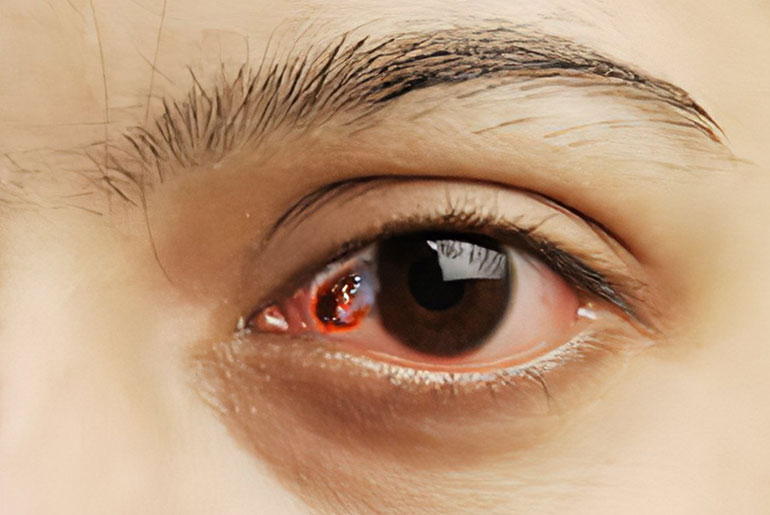Eye cancer:
Eye cancer, also known as ocular cancer, is characterized by the uncontrolled growth of healthy cells in or around the eyes, leading to the formation of tumors. These tumors can be either benign, growing locally without spreading, or malignant, with the potential to grow and metastasize to other parts of the body. Although the incidence of eye cancer is relatively low in India, early detection is crucial for effective disease management.
Unfortunately, clinical presentations can vary, and individuals often overlook signs and symptoms until the disease has progressed significantly. Raising awareness about the importance of recognizing early indicators and seeking prompt medical attention is essential to improve outcomes for individuals affected by eye cancer. Regular eye check-ups and awareness campaigns play a vital role in facilitating early detection and intervention.
Eye cancer, like any other form of cancer, requires a multifaceted approach for detection, prevention, and treatment. Let’s summarize the key points:
Overview:
- Eye Cancer (Ocular Cancer): Uncontrolled growth of cells in or around the eyes leading to tumor formation. Tumors can be benign or malignant.
- Incidence: Relatively low in India, but early detection remains critical.
- Awareness: Recognizing early symptoms and signs is crucial for timely medical intervention.
Symptoms:
- Blurred vision, partial or total vision loss, light flashes, shadows, a growing dark patch, bulging of one eye, lumps on eyelids, and pain around the eyes.
Risk Factors:
- Alterations in cellular DNA, atypical moles, abnormal brown spots on the uvea or iris, and specific eye colors.
- Conditions like atypical moles, oculodermal melanocytosis, and iris nevus increase the risk.
Ayurvedic Perspective:
- Doshas (Vata, Pitta, Kapha): Imbalances in these doshas can manifest as different eye symptoms.
- Pitta Dosha: Linked to redness and inflammation.
- Vata Dosha: Associated with prolonged changes in vision.
- Kapha Dosha: Causes dryness and grittiness in the eyes.
- Approach: Ayurveda focuses on balancing these doshas through lifestyle modifications, dietary changes, and herbal remedies for overall well-being.
Treatment:
- Modalities: Surgery, radiation therapy, laser therapy, and chemotherapy.
- Surgery: Tailored to tumor characteristics while preserving healthy tissue.
- Radiation Therapy: Uses high-energy X-rays to target cancer cells.
- Laser Therapy: Suitable for smaller lesions by heating and burning the tumor.
- Chemotherapy: Considered for metastatic cases but generally less effective in eye cancer.
- Individualized Plans: Treatment strategies are tailored based on the tumor type, size, and extent. A multidisciplinary team of specialists is often involved.
- Monitoring: Regular follow-ups are essential to evaluate treatment effectiveness and manage side effects.
Conclusion:
Eye cancer demands early detection, awareness, and a comprehensive treatment approach. While modern medicine offers various treatment modalities, the holistic principles of Ayurveda emphasize preventive measures and balancing the body’s doshas for optimal ocular health and overall well-being. Regular check-ups, awareness campaigns, and individualized treatment plans are pivotal in managing eye cancer effectively.
Disclaimer:
The information contained in this article is for educational and informational purposes only and is not intended as a health advice. We would ask you to consult a qualified professional or medical expert to gain additional knowledge before you choose to consume any product or perform any exercise.







